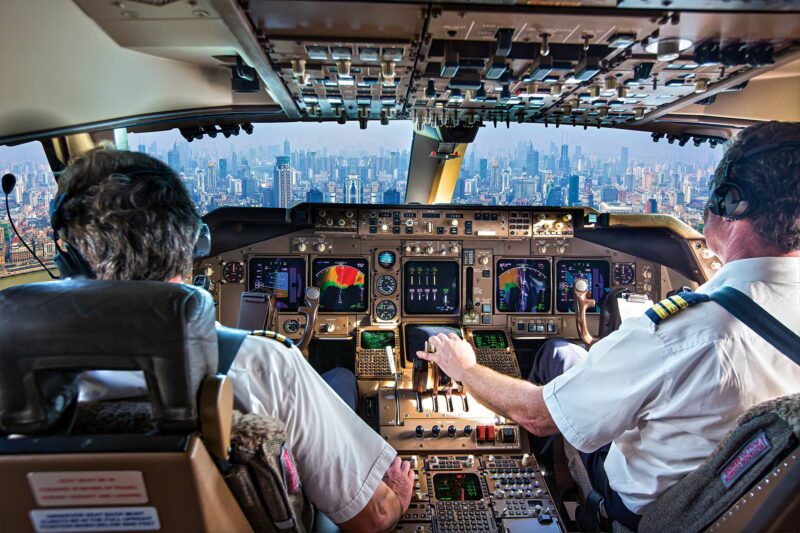US Pilots Show Reluctance to Accept Captain Promotions Due to Quality-of-Life Concerns

Amid ongoing contract negotiations between United Airlines and its pilots’ labor union, it has become evident that the allure of a captain’s rank is diminishing for many pilots. Despite the higher pay and status that come with the promotion, pilots are increasingly hesitant to take on the role due to the potential personal sacrifices involved.
While captains work alongside first officers, assisting with navigation and scheduling, more first officers are now reluctant to assume the position of captain. This hesitance stems from concerns over longer, last-minute flying assignments and increased on-call hours, as highlighted by union officials.
“The pandemic changed the way a lot of workers feel about work-life balance, and it certainly took place with our pilot group,” said Garth Thompson, United captain and chair of the Air Line Pilots Association union. He added that these concerns are likely to escalate and impact the company’s growth plans.
These quality-of-life concerns have become a focal point in the contract negotiations between United and its pilots’ union. The shifting priorities of workers during the pandemic reflect a broader trend where employees are seeking better working conditions alongside higher pay.
United Airlines currently has around 5,900 captains and 7,500 first officers. A first officer who has been flying wide-body jets at the airline for six years earns approximately $210,000 annually. In comparison, a captain flying narrow-body jets for the same duration would earn about 22% more if they fly the same number of hours, according to aviation consultant Kit Darby.
However, many pilots find that the transition from senior first officer to junior captain comes at the expense of control over their schedules and destinations, which they deem not worth the disruption to their personal lives.
For instance, United first officer Quincy Fleming, who operates Boeing 777s from San Francisco, expressed concerns that a promotion to captain would likely result in denied holiday requests and potentially being scheduled to fly on days off. Fleming stated, “What I’m reluctant to do is put myself back in the bottom of any seniority pile at this point in my life. I’ve got aging parents. I’ve got school-aged kids.”
United has plans to add 470 aircraft in the coming years. Fitch Ratings analyst Joseph Rohlena believes that United has historically not faced challenges in filling captain positions and dismissed any concerns about a shortage of captains affecting the airline’s growth. He expressed confidence that the airline would be able to source pilots to meet their growth plans.
Contract negotiations between United and its pilots began in 2019, and a proposed contract was voted against by the membership in November 2022, with a 94% to 6% majority. The union’s priorities include securing scheduling changes that allow on-call pilots more time to arrive at airports and alleviating the need for standby service, in addition to a pay increase.
United Airlines stated that they continue to work with the Air Line Pilots Association on the industry-leading deal they have proposed.
The COVID-19 crisis has brought scheduling and workplace conditions to the forefront of union activities. Workers’ demands for improved working conditions, in addition to higher wages, have been empowered by labor shortages across various sectors.
The airline industry, which is heavily unionized, typically engages in pattern bargaining for pilots, where standards established at one carrier set the benchmark for others. For example, Delta Air Lines recently ratified a contract that included a pay increase of 34% over four years and limitations on assigning pilots to longer trips. American Airlines’ pilots also reached an agreement that matched Delta’s pay scale and incorporated scheduling improvements.
United Airlines’ pilots are now looking for improvements that strike a balance between compensation and work-life balance. As the duration of trips has increased due to scheduling software changes, pilots desire limitations on longer assignments to spend more time with their families.
John Young, a first officer at United, shared his reluctance to transition to the captain’s seat due to potential disruptions to his work-life balance. He explained that such a move would likely result in more on-call hours, with just two and a half hours’ notice to report to work. Young emphasized the toll this could take on pilots, stating, “Unless you’re right next door to the airport, you’re sitting there with your shoes on. You burn people out.”
